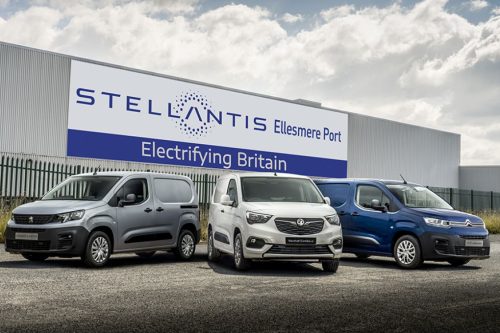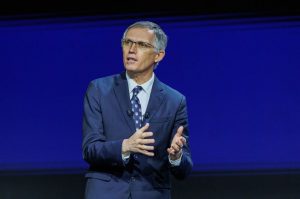Car giant Stellantis suffers 70% profits fall due to dip in US market

Car manufacturer Stellantis, which includes the Vauxhall manufacturing site in Ellesmere Port, has seen a sharp deceleration in revenues and profits for the 2024 period.
In December last year it revealed it had parted company with its CEO, Carlos Tavares, after a boardroom fall-out, with the group announcing: “In recent weeks different views have emerged which have resulted in the board and the CEO coming to today’s decision.”
Figures released today (February 26) show group net revenues of £130.13bn, down 17% compared with 2023, while net profits of £4.56bn, were down 70%. Adjusted operating income of £7.13bn fell 64%.
Industrial free cash flows were a negative £4.98bn, reflecting the decline in income and temporary enlarged working capital impact due to production adjustments.

Carlos Tavares
Total inventories for the year to December 31, 2024 were 18%, or 268,000 units lower year-over-year, including a 20% drop in US dealer stock to 304,000 units, surpassing a previously communicated target of 330,000 units
Total industrial available liquidity ended 2024 at £41.06bn, with the industrial net financial position at £12.52bn.
A dividend to common shareholders is proposed at £0.56 per share, representing a five per cent yield.
Financial guidance for 2025 is of “positive” net revenue growth and “positive” industrial free cash flows, reflecting both the early stage of the commercial recovery as well as elevated industry uncertainties.
Stellantis said the process to appoint the new permanent chief executive is well under way and will be concluded within the first half of 2025.
The group said the results are “consistent with the updated financial guidance released in September 2024.”
It said since the departure of Tavares the interim leadership team has taken quick, decisive actions to improve the company’s performance and profitability.
The group said it will launch ten new products in 2025.
Chairman, John Elkann, said: “While 2024 was a year of stark contrasts for the company, with results falling short of our potential, we achieved important strategic milestones.
“Notably, we began the roll-out of new multi-energy platforms and products, which continues in 2025, started production of EV batteries through our JVs, and launched the Leapmotor International partnership.
“We are firmly focused on gaining market share and improving financial performance as 2025 progresses.”
Last November the group confirmed its Cheshire site – which previously made the popular Vauxhall model and now produces electric vans – had been saved from the threat of closure.
Instead it announced plans to close its van production site in Luton, with the loss of more than 1,000 jobs, and switch production to Ellesmere Port, where 1,100 staff are employed.
Amsterdam-based Stellantis includes the car brands Abarth, Alfa Romeo, Chrysler, Citroën, Dodge, DS Automobiles, FIAT, Jeep, Lancia, Maserati, Opel, Peugeot, Ram, Vauxhall, Free2move and Leasys.
Following publication of the results, Russ Mould, investment director at Manchester investment platform, AJ Bell, said: “Stellantis was stuck in reverse gear once again.
“Since the abrupt departure of Carlos Tavares last year, the company has lacked a permanent hand on the wheel and it badly needs to fill this position so it can start driving the business in the right direction.
“Stellantis needs to stick to the timetable of appointing someone before the end of the first half while still making sure it secures the right person for the job.
“The latest numbers are ugly, with margins at the bottom of the guidance given when warning on profit last year, and earnings were almost entirely wiped out in the second half of the year.”
He added: “The market will be aware that any new boss will want to kick the tyres on the business before committing themselves to any meaningful targets and they may well look to take the kitchen sink to guidance to give themselves a manageable bar to clear.
“That could mean the promised return to profitable growth and positive cash generation in 2025 proves overly optimistic.
“Stellantis, like the rest of the industry, is facing a difficult transition with the pace of electric vehicle adoption uncertain. Whoever comes in will have to steer a course through difficult market conditions.”








